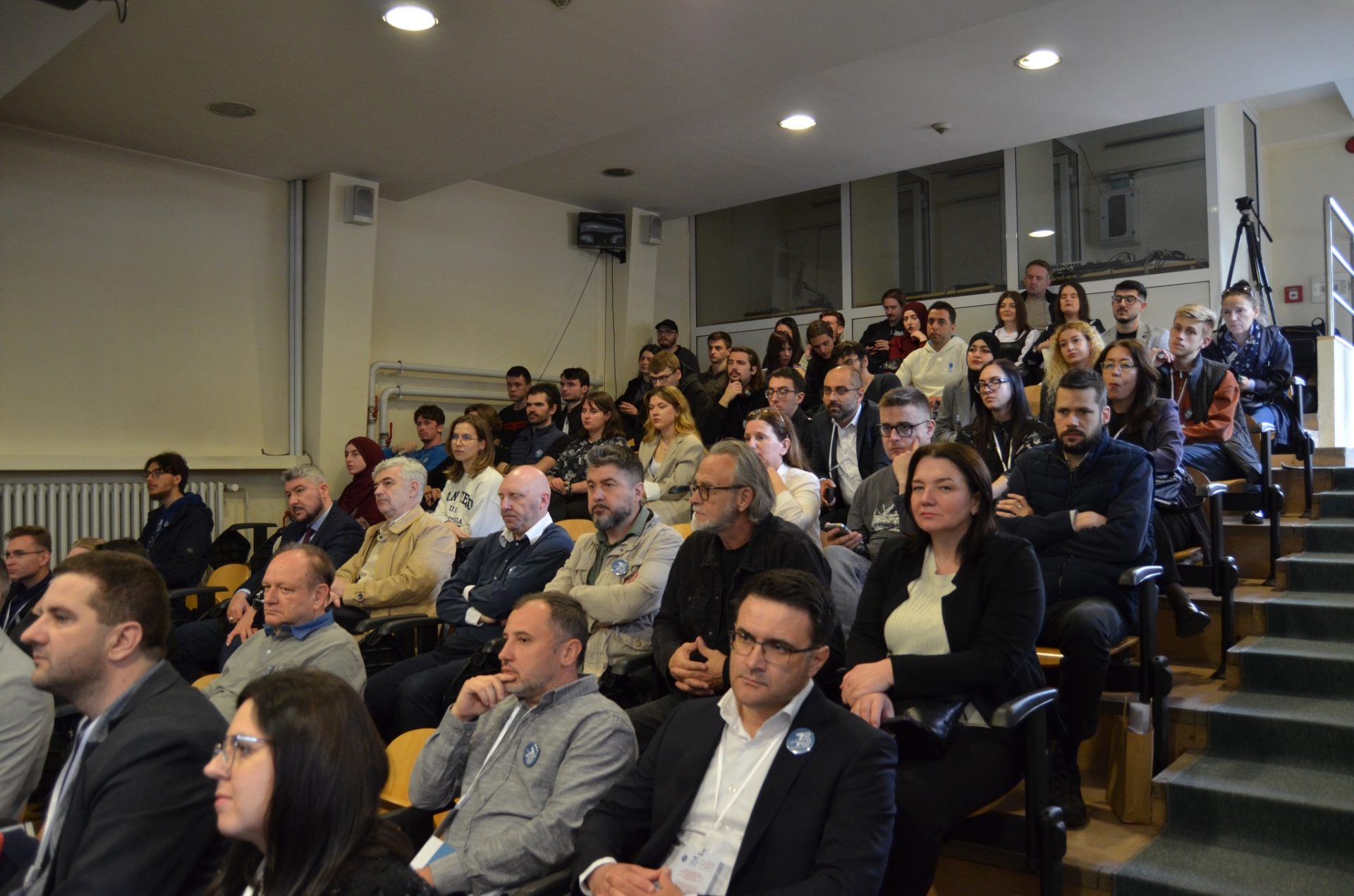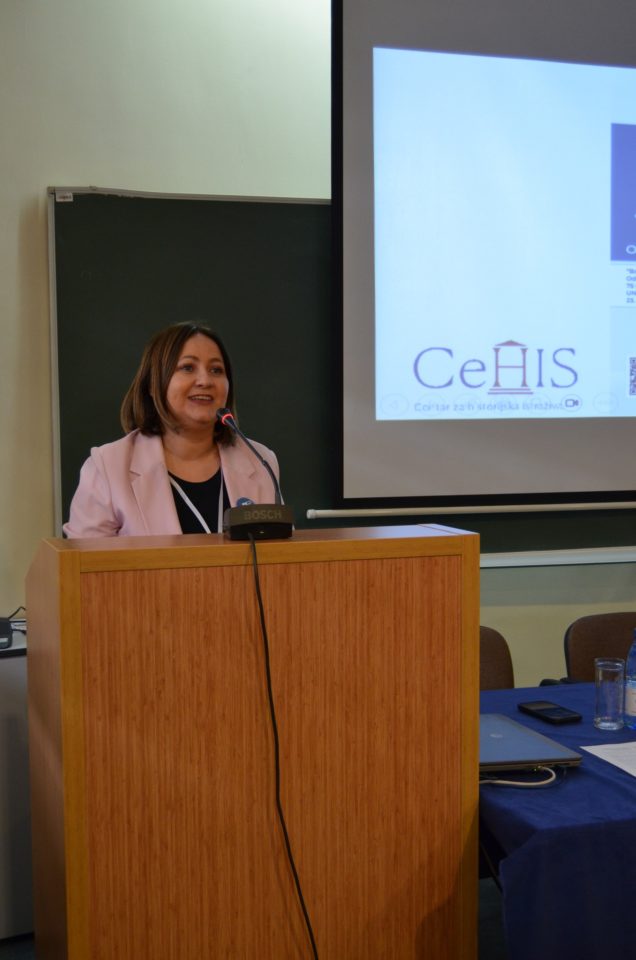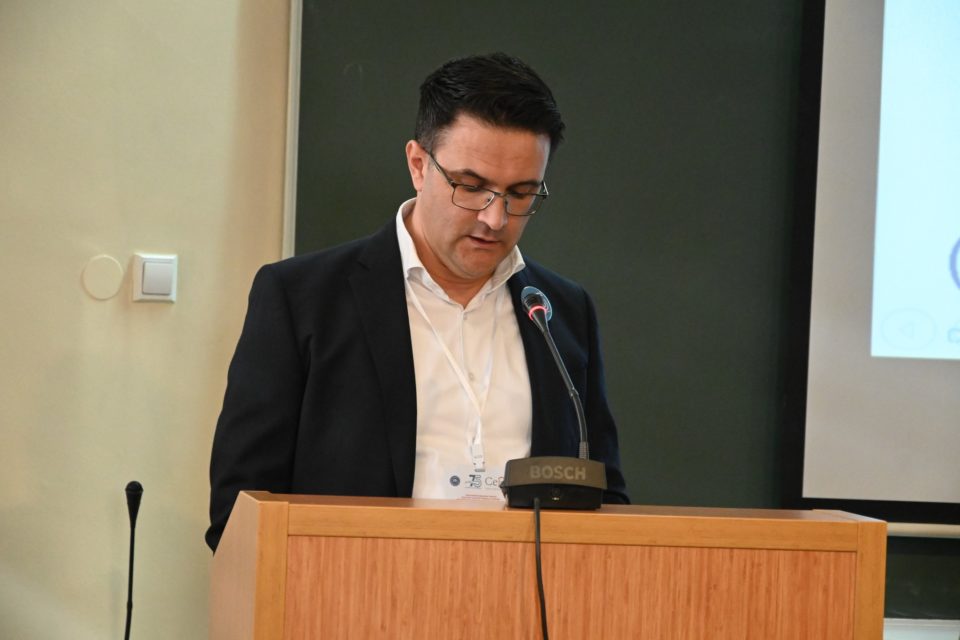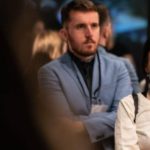
The History Department of the Philosophy Faculty at the University of Sarajevo is celebrating its 75th anniversary.
It has gone through the several stages of development to meet the contemporary challenges of historiographical science in Bosnia and Herzegovina. Today, it represents a place for dialogue, creative disagreement, and collaborative learning—a space where the past is not memorized by heart, but debated, analyzed, and understood.
For the historians, archivists, curators, professors, researchers, and intellectuals who have built and are building careers and collective memory, the Sarajevo Department of History is more than just an educational foundation. In celebration of the 75th anniversary, a three-day academic conference was held titled “The History of Bosnia and Herzegovina through the Eyes of History Department Alumni.” The conference brought together PhDs and History Department graduates, who today work at various academic institutions, bringing contemporary insights to the study of history, art history, and archaeology. A doctoral workshop also gave new generations of researchers the opportunity to present their interests, approaches, and methodologies.
For Professor Amra Šačić Beća, the head of the Center for Historical Research, the History Department’s 75th anniversary has personal and professional significance. She calls the department her second home. On the occasion of the jubilee, she highlighted the importance of continuing to educate experts not only in history but also in related fields such as archival science, museology, and journalism. She also emphasized that all other history programs in Bosnia and Herzegovina were created thanks to personnel from the Sarajevo Department. This legacy, she believes, entails an obligation both to preserve the dignity of the profession and to engage critically with the challenges that shape the contemporary humanities.

Professor Šačić Beća highlighted two key milestones in the operations of the History Department: the introduction of national history curriculum in the 1970s, and the implementation of the Bologna Process in 2005. Both reforms, she explained, arose from the imperative to adapt historiography to the needs of society and of the present—first through contextualizing Bosnian space in the curriculum, and then by encouraging more active student participation in the learning process.
“The Past is Not Memorized”
Professor Amir Duranović sees the role of the History Department as constantly relevant, despite the challenges brought by social, political and educational circumstances.
“We are part of society, we work with society and for society,” said Professor Duranović. He pointed to the importance of continuing the mission of educating competent individuals who understand the past while actively engaging in the present and planning for the future.
He explained that the Department is a place of dialogue, creative disagreement, and collaborative learning—a space where the past is not memorized, but discussed, analyzed, and understood.
Professor Duranović tells History Department students that a dynamic academic community awaits them in a discipline that requires dedication while offering opportunities to learn not only from books, but also from field work, archival research, and socially engaged projects. In times of global crises, migrations, conflicts, and cultural transformations, understanding the past becomes a tool for making sustainable decisions in the present.

Upholding Scientific Ethics
The History Department’s professors do not turn a blind eye to controversies. Professor Šačić Beća emphasizes that remaining “objective” at a time when policies and national narratives are being used in an effort to shape history is increasingly challenging.
History is often politicized, and historians are attacked when their research does not support dominant narratives. Nevertheless, the professor believes that younger generations have the potential and will to uphold scientific ethics.
According to the professors, the University of Sarajevo History Department is a place where the past is not just taught but researched, questioned, and reinterpreted. To them, this anniversary is not only a symbol of the department’s endurance but also a reminder of the role that knowledge plays in shaping society. History, they assert, is not limited to the archives; it shapes the way we think about ourselves, others, and the ever-changing world.
Through their dedication to research, critical thinking, and public engagement, the students and professors of the History Department show how academia remains relevant in everyday life beyond the classroom. History is learned not only for the sake of knowledge but also for understanding, reconciliation, and a responsibility to future generations. At a time when facts are often relativized and the past is misused for political purposes, the existence of professional, critical, and ethical historiography is a necessity. Therefore, the History Department’s students and professors do not just relay information—they think critically, analyze, and draw conclusions that can have real impacts on society.






